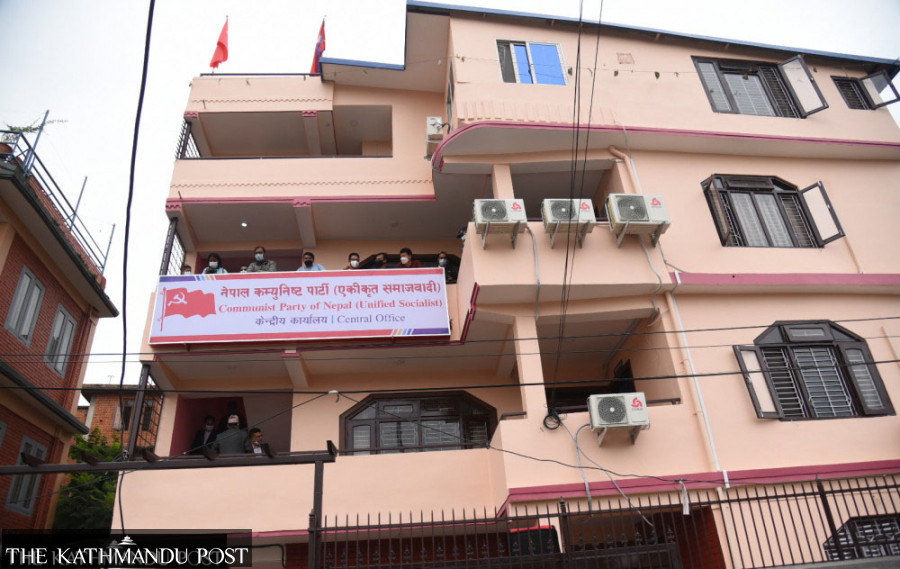Politics
Unified Socialist forms task force amid left unity talks
The party is yet to decide whether to support the UML-backed Dahal government in a floor test next week.
Post Report
Nearly two years after the dissolution of the powerful Nepal Communist Party that was formed after a merger between the CPN-UML and the CPN (Maoist Centre), the CPN (Unified Socialist) on Thursday formed a four-member task force to explore the possibility of unity among left-leaning political forces in Nepal.
CPN (Unified Socialist) Deputy General Secretary and spokesman Jagannath Khatiwada said the four-member task force is led by party general secretary Beduram Bhusal with Gangalal Tuladhar, Prakash Jwala and Vijay Poudel as members. The announcement comes amid ongoing ‘unification negotiations’ between the Unified Socialst and the Janata Samajbadi Party, a Madhesh-based left-leaning party of Upendra Yadav.
The CPN (Unified Socialist) is a splinter party formed by dissidents in the CPN-UML 17 months ago. In the general elections last November, the party could not win enough proportional representation votes to become a national party. It has 10 seats in the lower house.
Unified Socialist leaders said they are not sure whether they will approach their former rival CPN-UML with a unity proposal.
The Nepal Communist Party, the most powerful leftist party in Nepali parliamentary history born of a merger between the CPN-UML and the CPN (Maoist Center) in 2018, was split into its pre-merger state in March 2021 by a Supreme Court’s verdict following a dispute over the party’s name. The verdict favoured a fringe leftist leader Rishiram Kattel who had challenged the Election Commission’s earlier decision to award the Nepal Communist Party (NCP) name, NCP within brackets, to KP Sharma Oli and Pushpa Kamal Dahal, saying that “Nepal Communist Party” was already registered under Kattel’s name back in 2013.
In the following August, the CPN-UML too split after a group of dissidents led by Madhav Kumar Nepal launched the CPN (Unified Socialist). Given the chequered history of communist parties in Nepal, observers doubt the new unification initiative will be any effective.
Khatiwada said the task force will discuss with and consult leftist parties, individuals and organizations in order to explore the possibility of a sustainable unification among leftist parties.
But Bhusal said they have no immediate plans to negotiate with the UML, the largest leftist party, “because we are not sure if the UML is interested in a leftist unity or an alliance.”
Bhusal’s assertion is not unreasonable since UML leaders including General Secretary Shanker Pokhrel and Deputy General Secretary Pradip Gyawali have been flatly rejecting any possibility of collaboration with the Unified Socialist.
Despite the UML’s dislike for the Unified Socialist, Prime Minister Pushpa Kamal Dahal, who landed the premiership with UML’s backing, wants to see the Unified Socialist in the ruling alliance. On Wednesday, Dahal met Unified Socialist chief Nepal and asked the latter to back the government during his confidence vote on January 10.
“We have not decided our position on the new government, but we will, before January 10,” said Khatiwada.




 16.12°C Kathmandu
16.12°C Kathmandu













